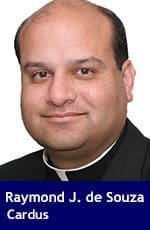 Who does the government compete with? Is a public school a sacred building?
Who does the government compete with? Is a public school a sacred building?
A recent surplus building sale raises those questions.
Near Brockville, Ont., the local public school board has sold the Wolford elementary school that it closed in 2018. The building was surplus, no other government had a use for it, so the school district put it up for sale.
The school board got an offer of $350,000 from Heritage Community Christian School, which it turned down because they didn’t want the building used for a private school. The school district eventually sold the building for $303,030 with a stipulation that the building not be used for “education outside the public system” for 99 years. Violating that stipulation earns a fine of $1 million.
Non-compete clauses are pretty standard in the corporate world. Someone who buys Wrench’s Auto Service may insist on a clause that prevents Wrench or his affiliates from opening another garage within the same city. Or perhaps Wrench owns the neighbouring lot and sells it with the stipulation that the buyer not open a competing garage on the property.
The Upper Canada District School Board (UCDSB) clearly regards any private school as Wrench might regard another garage: namely, competition for customers.
This is not unexpected. As the total number of students in Ontario falls, existing school boards are very attentive to where their students might go.
But do the students really belong to UCDSB?
Students in the district are free to seek education outside board schools. Those who attend Heritage Christian already do. And more want to join them, hence the Christian school’s desire to buy the Wolford building. So the students don’t belong to UCDSB either.
But why shouldn’t UCDSB try to do what Wrench does, to limit the competition’s access to resources?
The difference is that the government is meant to serve the entire public, not just those who prefer UCDSB schools. Wrench has no such obligation. Indeed, because the UCDSB is meant to serve the entire public, it’s funded by tax dollars from everyone, including parents who send their children to Heritage Christian. Wrench doesn’t get payment from customers at other garages.
The implication of UCDSB’s position is that only the government can provide education for the public and is therefore entitled to constrain its ‘competition.’ But that position is supported neither in law nor public policy, both of which recognize the right of parents to choose other schools – or homeschooling – for their children.
UCDSB is misunderstanding its role in education. Private schools, or other publicly-financed school boards, are not competitors, but partners in education.
The stipulations in the UCDSB sale are similar to what’s customarily found in the sale of closed churches. For example, a sold Catholic church may include a provision that it never be used for sacred rites, to make clear that it’s no longer an active church and to prevent it from being used for false worship. It’s common that the buyers of churches promise not to allow certain activities in them – for example, gambling or a nightclub. The building still retains something of its sacred character, or least its sacred history, and that must be respected.
Here UCDSB would be on stronger ground if it wishes to claim that the Wolford school has a sacred character – the education of children in the public, government-run system. The building was built for that sacred purpose and so can’t be used for an alternate religion, namely private education. To make the point explicitly, Heritage Christian can’t operate in the Wolford school because they don’t worship the same god: state-run education.
That would justify the UCDSB decision not to sell to Heritage Christian, just as Seventeenth Street Baptist is entitled not to sell its sanctuary to Bump ’n’ Grind Pub and Resto Bar.
But is that the argument UCDSB wishes to make, that its buildings have been consecrated to a particular delivery method of education or to a particularly philosophy of education?
I don’t imagine UCDSB would want to say that. But perhaps there are some who think it?
Father Raymond de Souza is editor-in-chief of Convivium and a Cardus senior fellow.
The views, opinions and positions expressed by columnists and contributors are the author’s alone. They do not inherently or expressly reflect the views, opinions and/or positions of our publication.


